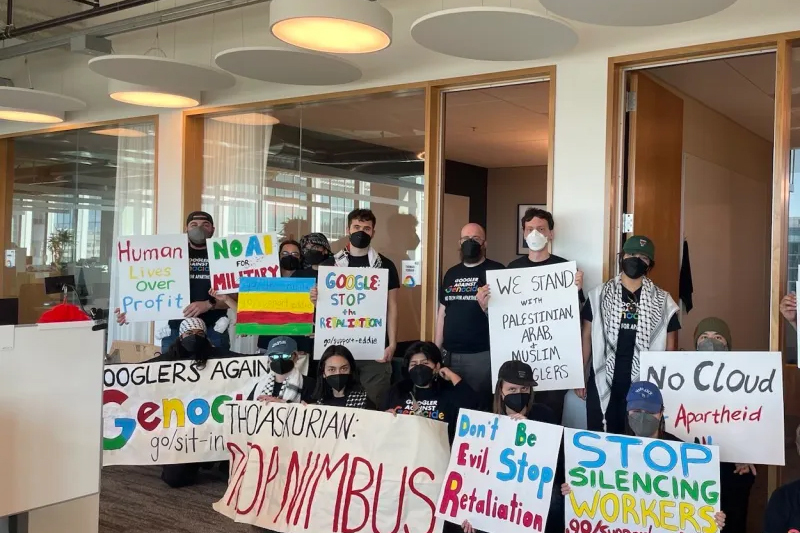

In a controversial move, Google fired 28 Workers who participated in protests against Project Nimbus, a $1.2 billion joint contract with Amazon.com Inc
In a controversial move, Google fired 28 Workers who participated in protests against Project Nimbus, a $1.2 billion joint contract with Amazon.com Inc. to provide AI and cloud services to the Israeli government and military. The firings have sparked debate over employee activism and corporate policies.
The protests, organized by the No Tech for Apartheid group, took place at Google offices in New York City, Seattle, and Sunnyvale, California. Protesters staged a sit-in and documented the action, leading to nine arrests. Following the protests, Google fired 28 employees, citing violations of company policies and disruption of work.
Google defended its decision, stating that the protesters had impeded the work of other employees and violated company policies. The company emphasized that the Nimbus contract did not involve sensitive or military-related workloads. However, critics argue that the firings undermine employee rights and free expression.
Under US labour law, employees have the right to engage in collective action regarding working conditions. Tech workers argue that this should extend to ethical concerns about how their work is used. Labour experts suggest that companies need to address these issues transparently to avoid similar controversies.
Google’s response to the protests highlights the tension between employee activism and corporate culture in the tech industry. Despite their progressive image, tech companies have often faced criticism for their handling of labour activism, raising questions about their commitment to diversity and inclusion.
The protests have sparked internal debate at Google, with employees expressing varying opinions on the Middle East conflict. Some feel the topic is inappropriate for workplace discussion, leading to moderators locking down certain discussions. This reflects the challenges companies face in managing internal discussions on sensitive issues.
Google’s decision to fire employees over the protests against Project Nimbus underscores the complexities of employee activism and corporate policies. The incident highlights the need for tech companies to engage with employees on ethical issues more openly and constructively to maintain trust and integrity within their workforce and the broader community.
Former President Donald Trump is taking legal action to strike down one of the topics on the forgotten list of…
As U.S. retailers like Walmart and Costco pursue alternatives to Chinese and Bangladeshi suppliers due to rising tariffs, India's garment…
U.S. worker productivity declined for the first time in almost three years in the first quarter of 2025, in a…
According to the Ministry of Health, Labour and Welfare in March 2025, Japan's inflation adjusted real wages fell by 2.1%…
BluSmart Mobility, once viewed as India’s green ride-hailing alternative, ceased operations in April 2025 leaving nearly 10,000 drivers unemployed without…
The India-UK Free Trade Agreement (FTA), recently learnt, has attracted some attention for one of its benefits enabling Indian workers…
This website uses cookies.
Read More